Refurbished £15.75m Wedgwood museum opens in Barlaston
- Published
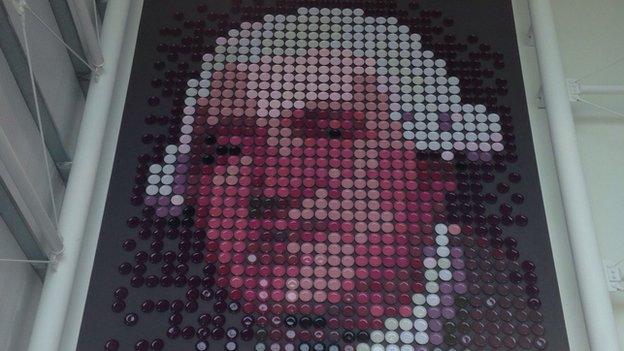
A plate mosaic of founder Josiah Wedgwood adorns a wall in the museum
It has been 10 months since the historic Wedgwood Museum ceramic collection was saved in record time "for the nation". Now, a new museum housing the vast collection has opened to the public at the £34m World of Wedgwood attraction in Barlaston, Staffordshire.
The 256-year-old Staffordshire-based company is one of the oldest in the world, set up by Josiah Wedgwood, the grandfather of naturalist Charles Darwin, in 1759.
The company's vast pottery collection was described by local Labour MP Tristram Hunt as "perhaps the most compelling account of British industrial, social and design history anywhere in the world".
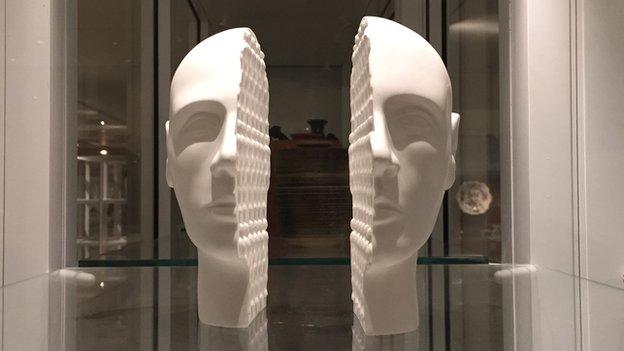
A 1976 bone china sculpture by local art student Glenys Barton can be seen
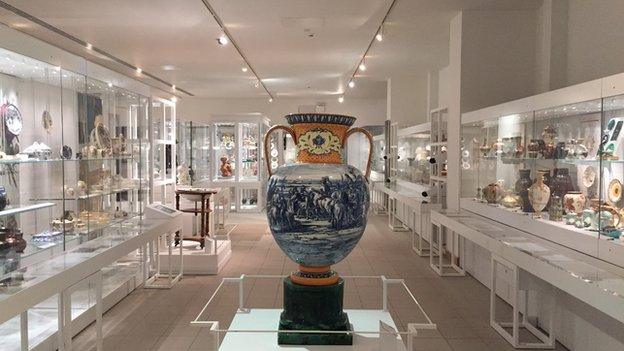
One of a pair of large 19th Century vases, probably intended for an exhibition
The collection faced being sold to help pay off the pottery firm's pension bill, inherited by the Wedgwood Museum after Waterford Wedgwood plc collapsed in 2009.
A target of £15.75m was set to save the collection. The Heritage Lottery Fund, the Art Fund and a number of smaller trusts contributed, while a public appeal, including donations from businesses, raised a further £2.74m, and the collection saved in 33 days.
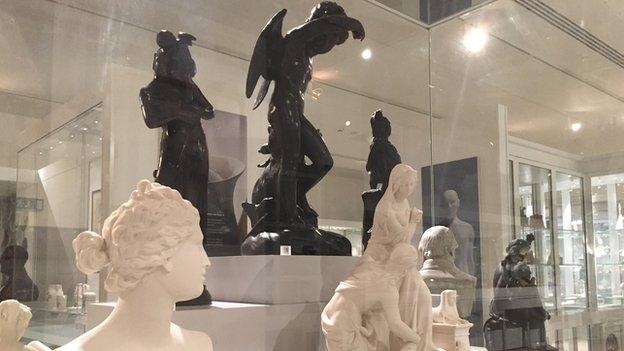
The black Cupid, made from basalt, dates from 1851
Dr Stephen Deuchar, director of the Art Fund, said the Save Wedgwood appeal had been the fastest fundraising campaign in the charity's 111-year history, reaching its target almost two months before its deadline.
The collection was gifted to the Victoria and Albert Museum and loaned to the Wedgwood Museum in perpetuity.
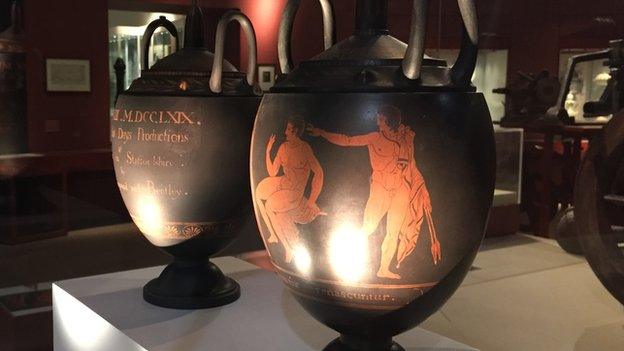
Two of the six remaining First Day's Vases mark the opening of the Etruria factory in 1769
Barlaston's is the largest collection of Wedgwood ceramics in the UK. Half of the 8,000 ceramic pieces and many of the 75,000 manuscripts are on display at the new World of Wedgwood.
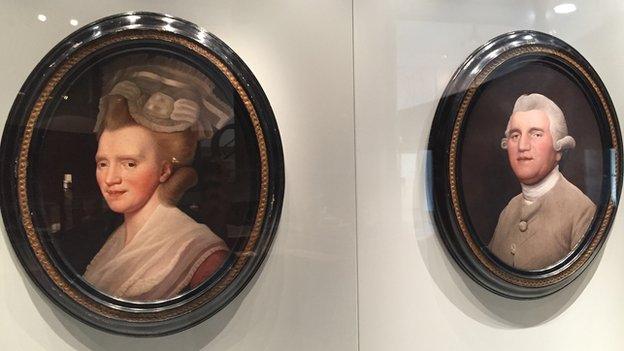
Paintings of Josiah Wedgwood and his wife Sarah are part of the collection
Museum director Gaye Blake-Roberts said: "You could argue that Wedgwood was a genius: somebody that touched everything but was genuinely interested in every aspect of production, marketing, design and fashion,
She said the thousands of manuscripts from Wedgwood's past - including correspondence with his business partner Thomas Bentley, customers, and his family - made the collection unique.
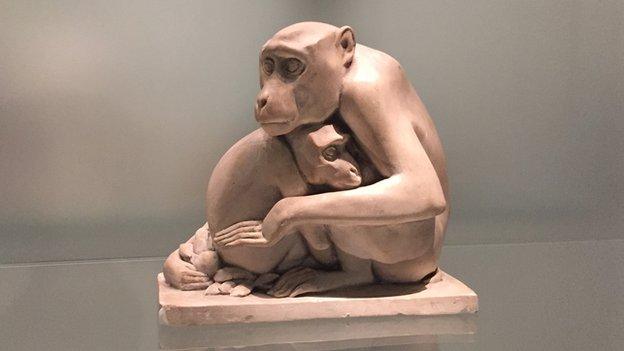
The 1935 model of a monkey by artist John Skeaping is one of 14 he designed for Wedgwood

Wedgwood
The pottery firm was founded in Etruria, Staffordshire, by Josiah Wedgwood in 1759
The first museum opened in 1906 and the collection remained on public display at the factory until the start of World War Two
Wedgwood moved its factory to Barlaston in 1940
The company merged with Irish brand Waterford Crystal in the 1980s to create Waterford Wedgwood
It had debts of about £400m when it went into administration in January 2009
The company was bought by US equity firm KPS Capital Partners in 2009 and became Waterford Wedgwood Royal Doulton
In 2015 WWRD was sold to the Finnish consumer goods company Fiskars for £285m

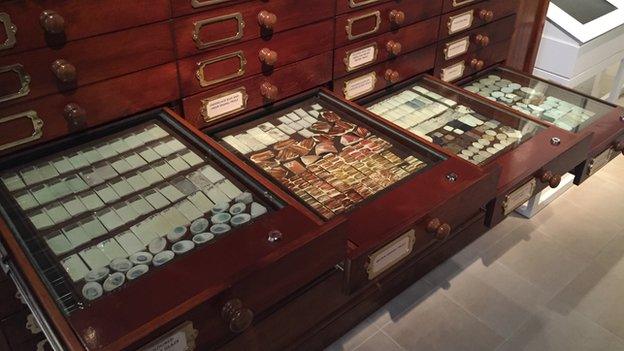
Drawers full of Wedgwood's test pieces show his experimentation with colour
In June 1759, Josiah Wedgwood opened a small factory in Burslem, Staffordshire. A decade later, at Etruria, near Stoke-on-Trent, he built a larger factory and next to it a village where his workers and their families could live in decent surroundings.
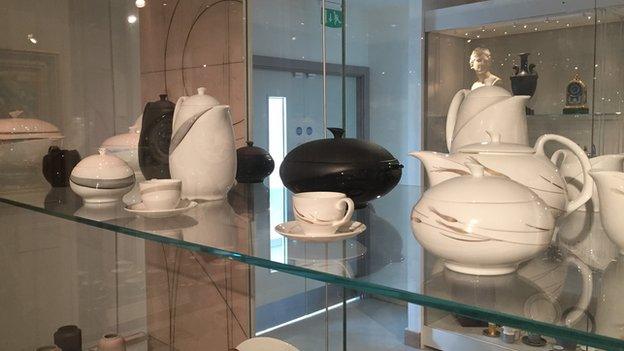
This 1985 bone china set, Shape 225, celebrated the company's 225 birthday
Wedgwood's sense of a duty of care to his employees was rare and ahead of its time, but he was a pioneer in other regards too, according to Potteries historian Fred Hughes.
"Josiah Wedgwood was as well known in the mid-Georgian era in Moscow and New York as he was in England," he said.
"Everybody knew the Wedgwood brand. Wedgwood was certainly sending pottery out to India before the British Empire established itself there."
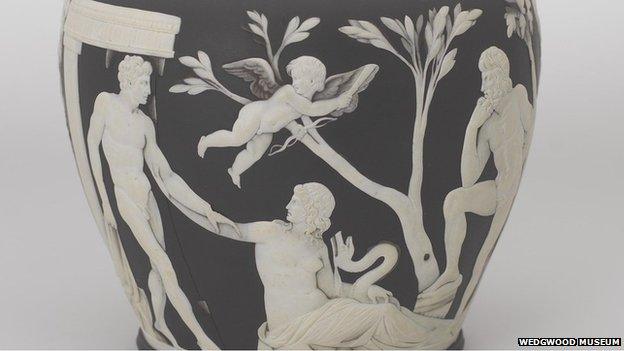
Josiah Wedgwood's Portland Vase is one of the centrepieces of the collection
Now the company has 35 shops in China and signed a deal this year to open another 21.
Its pottery remains popular in Europe and, according to global design director Richard Delaney, in Japan.
"We have a huge presence in the US and certainly a growing presence in Asia," he said.
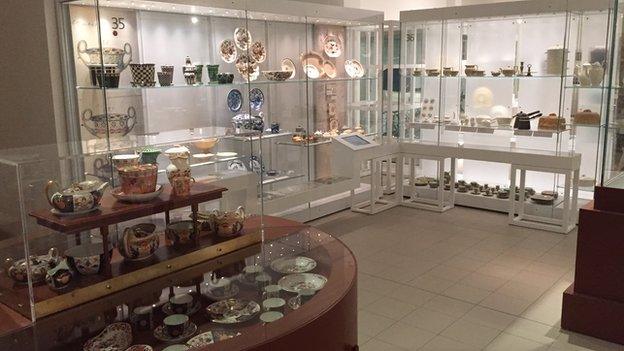
Around half of the 8,000 pieces of ceramics in the collection are displayed
Wedgwood sells wares by celebrated designers Vera Wang and Jasper Conran, and has made trophies for the World Golf Championships.
Mr Hughes said: "It is amazing for the company to have lasted so long in an industry that has become extremely competitive."
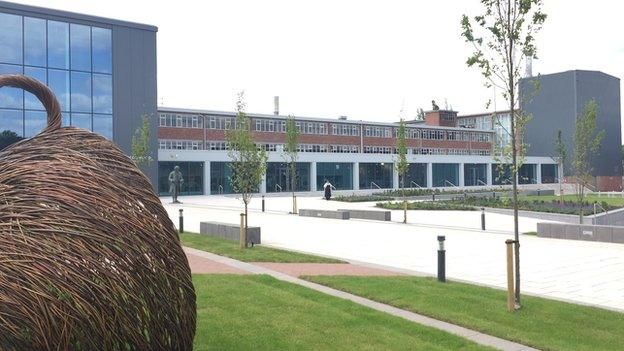
Wedgwood production was moved to the Barlaston site in 1940
- Published3 October 2014
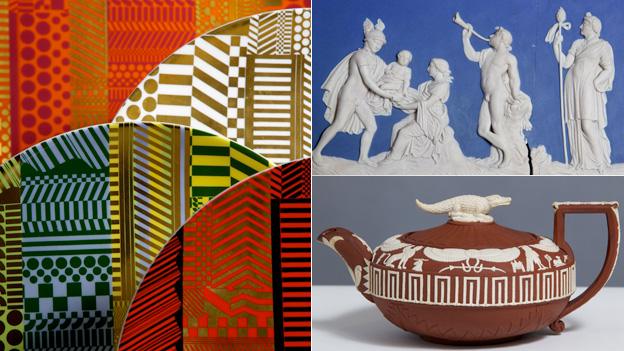
- Published25 September 2014
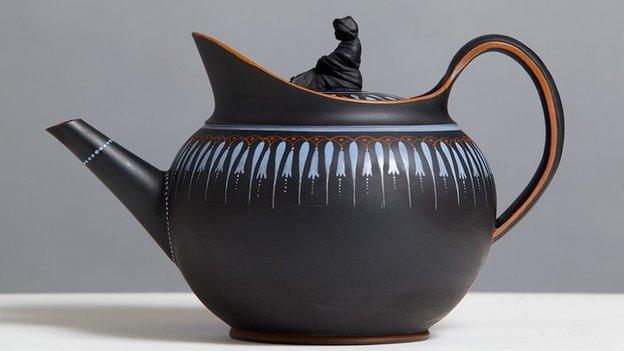
- Published20 September 2014
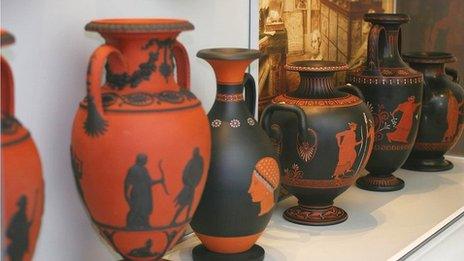
- Published1 September 2014
